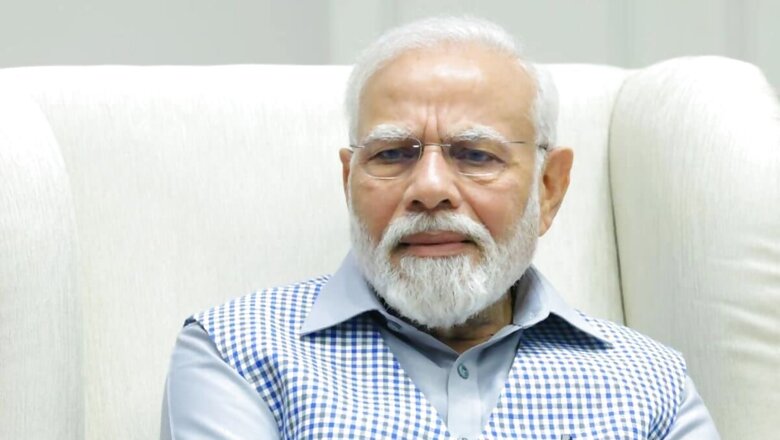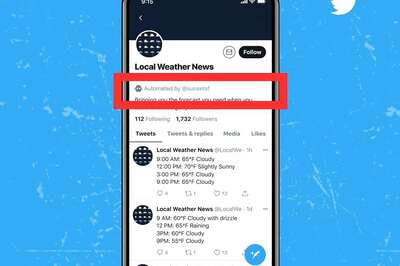
views
Several key things stand out from PM Narendra Modi’s latest interview with Network 18’s Rahul Joshi, Santosh Menon, Karthik Subbaraman and Javed Sayed where the prime minister laid out his plans ahead of the global summit:
Democratisation of the G20: The PM’s assertion about the democratisation of the G20 and how differently India has organised the event — with 220 meetings being held in 60 cities across all 28 states and eight Union Territories.
This is significantly different from the usual mono-focus on national capitals. It reflects not only a lasting legacy that India’s G20 presidency will leave behind in diplomatic terms but also a nuanced political approach to big events domestically. As PM Modi put it, “Historically, in the circles of power, there was a certain reluctance to think beyond Delhi, particularly Vigyan Bhavan, for hosting national and international meets. This may have been due to convenience or lack of confidence in the people.”
Modi insisted that he has not made any of his major policy announcements from Vigyan Bhawan. Even the UPI announcement, for example, was made at the Talkatora stadium.
In some ways, this decentralising approach is a natural offshoot of the Modi government’s approach in bilateral diplomacy as well. In terms of world leaders, the then-German Chancellor Angela Merkel was hosted in Bengaluru. French President Emmanuel Macron and the then-Japanese Prime Minister Shinzo Abe visited Varanasi. Portuguese President Marcelo Rebelo de Sousa was hosted in Goa and Mumbai. Bangladesh Prime Minister Sheikh Hasina visited Shantiniketan. The then-French President Francois Hollande visited Chandigarh.
In terms of multilateral forums, India hosted the BRICS Summit in Goa and the Forum for India-Pacific Islands Corporation Summit in Jaipur.
Importantly, this capacity-building and showcasing of India beyond Delhi is not restricted to NDA-led states alone. As Modi put it, “Many of the examples I have quoted are of states that had non-NDA governments at the time. This is also a testament to our firm belief in cooperative federalism and bipartisanship when it comes to national interest.”
Digital Alternative for the Global South – A New Model for Welfare Delivery: The interview also reflected India’s strong emphasis on digital public infrastructure and how it has emerged as such a central theme of its G20 presidency. These have not only had a “multiplier effect” on the economy and a “deep social impact” but have become a major tool of Indians diplomacy.
With Jan Dhan-Aadhaar-Mobile (JAM) trinity, India now has major tech solutions to offer to countries in the Global South for direct benefit transfer-based social welfare systems. UPI has emerged as a major fin-tech hinge.
“Today, when foreign delegates visit India, they are amazed to see street vendors asking customers to pay through a QR code through UPI,” said Modi. “No wonder, India accounted for almost half of the real-time digital transactions that happened in the world.”
This is one reason why a framework to govern digital public infrastructure has been adopted by the Digital Economy Ministers. There is a reason why organisations like the IMF, the World Bank and global tech leaders like Sundar Pichai and Satya Nadella have been publicly effusive of India’s digital public infrastructure and why this has become such an important tool of India’s soft power and diplomacy.
Power Play Ahead of 2024: A month after announcing from the ramparts of the Red Fort that he would “be back” next year, PM Modi continues to exude confidence. At a time when the INDIA alliance has moved ahead with mechanics for cooperation in its joint front against the BJP, Modi’s response on the outlook for the 2024 poll is typical.
“In 2014, nobody knew Modi and yet they voted me in with such a huge mandate,” he said. “Ten years on, they’ve seen a little bit of Modi everywhere — in the Chandrayaan Mission, in my recent visit to the US. Now that they know me well, I have no doubt that the people will choose correctly again.”
Tailpiece: At a time when social media is ablaze with the Bharat vis-à-vis India controversy, the prime minister’s choice of words to talk about his decentralising pitch in global diplomacy is very interesting. “I have a problem with those who think Dilli is Hindustan,” he told Network18 editors.” It is an important larger point on decentralisation, but for a leader who understands the politics of language more than most, the wordplay with Hindustani here makes for fascinating reading.


















Comments
0 comment